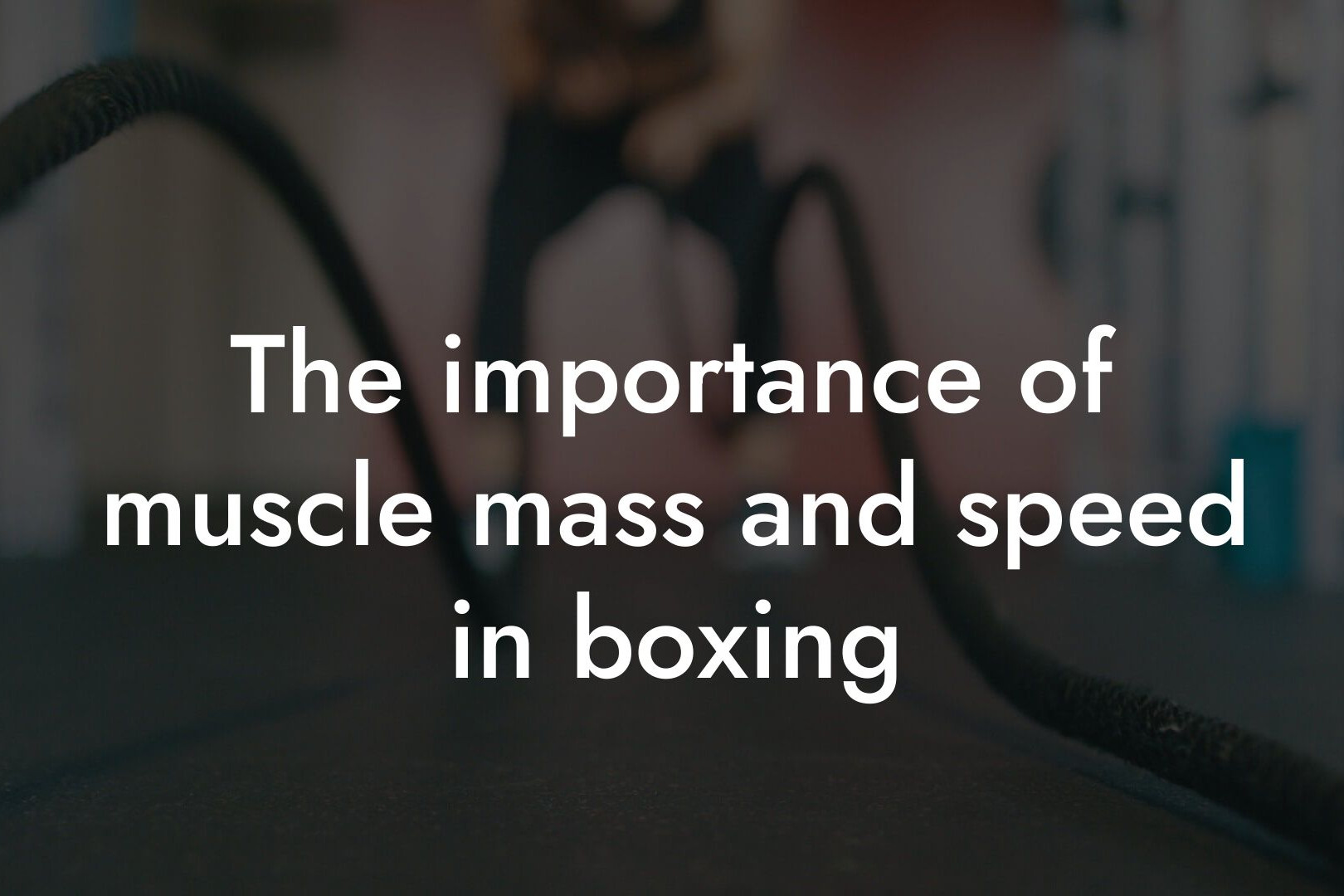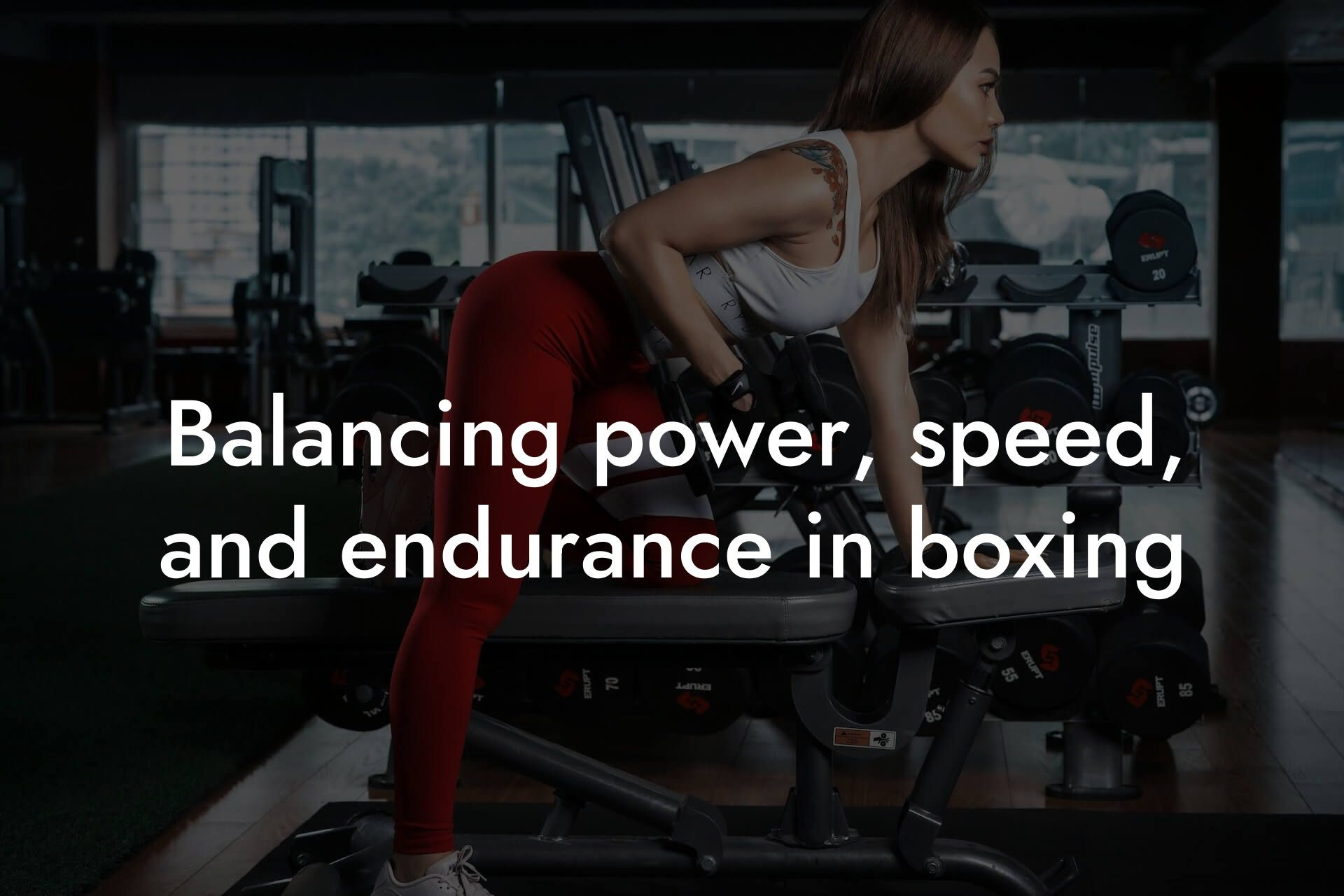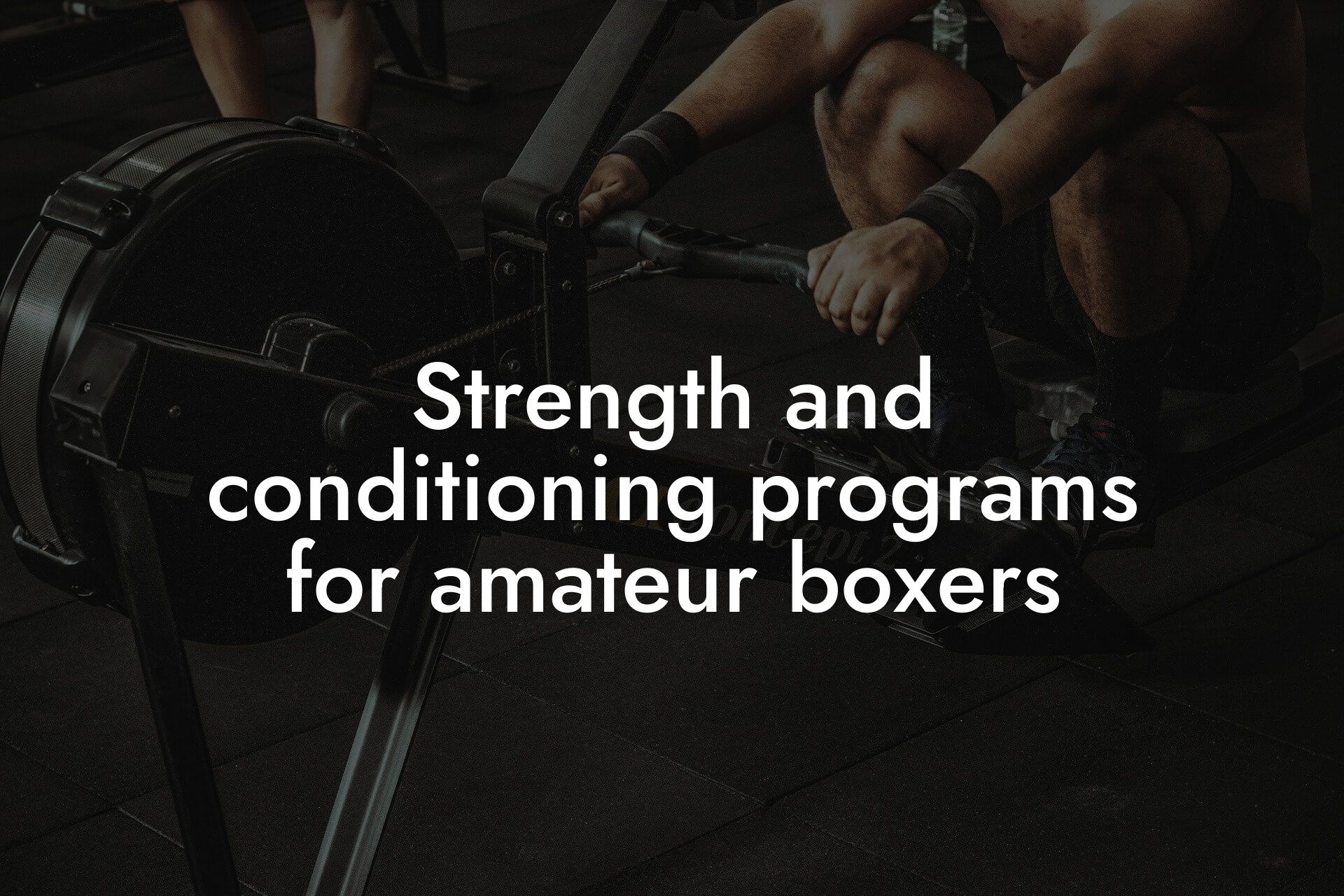As a high-earning professional interested in maintaining a strong physical appearance and physique, you understand the importance of prioritizing your overall health and well-being. Boxing is an excellent way to improve cardiovascular fitness, build strength, and boost confidence, but it also comes with a risk of injury. One crucial aspect of injury prevention in boxing is maintaining healthy bone density. In this article, we will delve into the world of bone density, its significance in boxing, and provide you with expert advice on how to prevent injuries and optimize your performance.
Table of Contents
What is Bone Density?
Bone density refers to the measurement of the amount of minerals, such as calcium and phosphorus, present in your bones. It is an indicator of bone strength and is typically measured using a Dual-Energy X-ray Absorptiometry (DEXA) scan. A DEXA scan provides a comprehensive assessment of your bone health, including bone density, body composition, and lean muscle mass. At Tano Performance Group, we use state-of-the-art DEXA technology to provide our clients with a detailed understanding of their bone health and overall physique.
Why is Bone Density Important in Boxing?
Bone density plays a critical role in boxing, as it directly affects your risk of injury. Boxers are at a higher risk of developing osteoporosis, a condition characterized by brittle and porous bones, due to the repetitive impact and stress placed on their bones during training and competition. Low bone density can lead to an increased risk of fractures, particularly in the hands, wrists, and feet, which can be devastating to a boxer's career. Moreover, poor bone density can also affect a boxer's performance, as it can lead to fatigue, decreased power, and reduced endurance.
Risk Factors for Low Bone Density in Boxers
Several factors can contribute to low bone density in boxers, including:
- Aging: Bone density naturally decreases with age, making older boxers more susceptible to osteoporosis.
- Inadequate nutrition: A diet lacking essential nutrients, such as calcium and vitamin D, can negatively impact bone health.
- Inconsistent training: Irregular or inadequate training can lead to poor bone density, as the bones are not subjected to sufficient stress to stimulate growth and development.
- Genetics: Family history and genetic predisposition can play a role in bone density.
- Hormonal imbalances: Hormonal deficiencies, such as low testosterone, can affect bone health.
How to Improve Bone Density in Boxing
Fortunately, there are several ways to improve bone density and reduce the risk of injury in boxing:
- Resistance training: Incorporating resistance exercises, such as weightlifting and bodyweight exercises, can help stimulate bone growth and development.
- High-impact training: Engaging in high-impact activities, such as jump rope and plyometric exercises, can help improve bone density.
- Proper nutrition: Consuming a diet rich in calcium, vitamin D, and other essential nutrients can support bone health.
- Adequate rest and recovery: Ensuring sufficient rest and recovery time can help your bones repair and rebuild.
- DEXA scans: Regular DEXA scans can help monitor bone density and identify areas for improvement.
Injury Prevention Strategies in Boxing
In addition to maintaining healthy bone density, there are several injury prevention strategies that boxers can employ to reduce their risk of injury:
- Warm-up and cool-down: Properly warming up and cooling down can help reduce the risk of muscle strains and other injuries.
- Proper technique: Mastering proper boxing technique can help reduce the risk of injury to the hands, wrists, and feet.
- Hand wrapping: Properly wrapping the hands can help reduce the risk of hand and wrist injuries.
- Mouthguard: Wearing a mouthguard can help reduce the risk of oral injuries.
- Headgear: Wearing headgear can help reduce the risk of head and facial injuries.
Maintaining healthy bone density is crucial for boxers looking to optimize their performance and reduce their risk of injury. By understanding the importance of bone density, identifying risk factors, and implementing strategies to improve bone health, boxers can take their training to the next level. At Tano Performance Group, we are committed to providing our clients with the tools and expertise they need to achieve their fitness goals and maintain optimal health. Whether you're a professional boxer or a fitness enthusiast, our state-of-the-art DEXA technology and expert guidance can help you unlock your full potential.
Take the First Step Towards Optimal Bone Health
Don't wait until it's too late. Schedule a DEXA scan with Tano Performance Group today and take the first step towards optimal bone health and injury prevention. Our team of experts will work with you to create a personalized plan tailored to your specific needs and goals. Contact us now to learn more and take your fitness journey to the next level.
Frequently Asked Questions
What is bone density and why is it important for boxers?
Bone density refers to the measure of how dense and strong your bones are. It's essential for boxers because it directly affects their risk of injury. Low bone density can lead to brittle bones, making them more prone to fractures and breaks. As a boxer, you want to ensure your bones can withstand the impact of punches and falls, which is why maintaining healthy bone density is crucial.
How does boxing affect bone density?
Boxing can have both positive and negative effects on bone density. On the one hand, the high-impact nature of boxing can stimulate bone growth and density. However, repeated blows to the head and body can also lead to bone loss and decreased density over time. It's essential for boxers to take proactive steps to maintain healthy bone density.
What are the risks of low bone density for boxers?
Low bone density can lead to a range of injuries, including fractures, breaks, and osteoporosis. As a boxer, you're at risk of suffering from these injuries, which can not only keep you out of the ring but also affect your overall health and wellbeing.
How can I improve my bone density as a boxer?
There are several ways to improve your bone density as a boxer. These include incorporating weight-bearing exercises into your training routine, such as running, jumping, and weightlifting. You should also focus on consuming a diet rich in calcium and vitamin D, which are essential for bone health.
What role does nutrition play in maintaining healthy bone density?
Nutrition plays a critical role in maintaining healthy bone density. A diet rich in calcium, vitamin D, and other essential nutrients can help support bone growth and density. Foods such as dairy products, leafy greens, and fortified cereals are all excellent sources of these nutrients.
Can supplements help improve bone density?
While supplements can be beneficial, they should not replace a healthy diet. Calcium and vitamin D supplements can help fill any nutritional gaps, but it's essential to consult with a healthcare professional or registered dietitian before adding any supplements to your routine.
How does age affect bone density in boxers?
As we age, our bone density naturally decreases. This can be a concern for boxers, as they may be more prone to injuries as they get older. However, with proper training, nutrition, and supplementation, boxers can maintain healthy bone density well into their 30s and 40s.
Can bone density be improved at any age?
Yes, bone density can be improved at any age. While it's more challenging to make significant improvements as we age, incorporating healthy habits into your lifestyle can still have a positive impact on your bone density.
How often should I get my bone density tested?
It's recommended that boxers get their bone density tested annually, especially if they're over the age of 30. This can help identify any potential issues early on, allowing you to take proactive steps to improve your bone density.
What are some common bone density tests?
There are several common bone density tests, including dual-energy X-ray absorptiometry (DXA) and quantitative computed tomography (QCT). These tests can help measure your bone density and identify any potential issues.
How does bone density affect my performance in the ring?
Healthy bone density can have a significant impact on your performance in the ring. With strong, dense bones, you'll be better equipped to withstand the physical demands of boxing, including punches and falls. This can give you a competitive edge and help you perform at your best.
Can bone density be improved through training?
Yes, certain types of training can help improve bone density. High-impact exercises, such as jumping and weightlifting, can stimulate bone growth and density. Additionally, exercises that focus on strengthening your core and legs can also help improve your overall bone density.
How does bone density affect my risk of osteoporosis?
Osteoporosis is a condition characterized by brittle, porous bones. Low bone density can increase your risk of developing osteoporosis, which can have serious consequences for boxers. By maintaining healthy bone density, you can reduce your risk of osteoporosis and related injuries.
Can bone density be improved through lifestyle changes?
Yes, lifestyle changes can have a significant impact on your bone density. This includes quitting smoking, reducing your alcohol intake, and getting regular exercise. Additionally, managing your stress levels and getting adequate sleep can also help support healthy bone density.
How does bone density affect my overall health?
Bone density has a significant impact on your overall health. Healthy bone density can reduce your risk of injuries, improve your athletic performance, and even reduce your risk of chronic diseases such as osteoporosis.
What are some common myths about bone density?
One common myth is that bone density is only a concern for older adults. However, bone density is important for boxers of all ages. Another myth is that you can't improve your bone density once you've reached a certain age. While it may be more challenging, it's still possible to make improvements with the right training, nutrition, and lifestyle changes.
How can I incorporate bone density exercises into my training routine?
Incorporating bone density exercises into your training routine can be simple. Try adding high-impact exercises such as jumping and weightlifting to your routine. You can also incorporate exercises that focus on strengthening your core and legs, such as squats and lunges.
Can bone density exercises be done at home?
Yes, bone density exercises can be done at home. Bodyweight exercises such as squats, lunges, and push-ups can be effective for improving bone density. You can also incorporate household items, such as water bottles or cans, into your workout routine to add resistance.
How long does it take to see improvements in bone density?
The amount of time it takes to see improvements in bone density can vary depending on several factors, including your age, diet, and training routine. However, with consistent effort and dedication, you can start to see improvements in as little as 6-12 months.
Can bone density be improved without exercise?
While exercise is an essential component of improving bone density, it's not the only factor. A healthy diet rich in calcium and vitamin D, as well as proper supplementation, can also help support bone growth and density.
How does bone density affect my risk of injury?
Low bone density can significantly increase your risk of injury. With brittle, porous bones, you're more prone to fractures, breaks, and other injuries. By maintaining healthy bone density, you can reduce your risk of injury and stay in the ring longer.
Can bone density be improved with physical therapy?
Yes, physical therapy can be an effective way to improve bone density. A physical therapist can work with you to develop a customized exercise program that targets your specific needs and goals.
Here are some related articles you might love...
- The importance of muscle mass and speed in boxing
- Balancing power, speed, and endurance in boxing
- Strength and conditioning programs for amateur boxers
- Reducing body fat for optimal weight class in boxing
- Nutrition tips for maintaining energy and muscle in boxing
- How body composition affects performance in boxing
- Off-season training for amateur boxers
- Recovery strategies for boxers after sparring sessions
- The role of DEXA scans in boxing training and weight management
Zak Faulkner
Zak Faulkner is a leading authority in the realm of physical health and body composition analysis, with over 15 years of experience helping professionals optimise their fitness and well-being. As one the experts behind Tano Performance Group, Zak has dedicated his career to providing in-depth, science-backed insights that empower clients to elevate their physical performance and overall health.
With extensive knowledge of DEXA technology, Zak specializes in delivering comprehensive body assessments that offer precise data on body fat, muscle mass, bone density, and overall physique. His expertise enables individuals to make informed decisions and achieve their fitness goals with accuracy and confidence. Zak’s approach is rooted in a deep understanding of human physiology, combined with a passion for helping clients unlock their full potential through personalised strategies.
Over the years, Zak has earned a reputation for his commitment to excellence, precision, and client-focused service. His guidance is trusted by top professionals who demand the best when it comes to their health. Whether advising on fitness programs, nutritional strategies, or long-term wellness plans, Zak Faulkner’s insights are a valuable resource for anyone serious about taking their health and fitness to the next level.
At Tano Performance Group, Zak continues to lead our Content Team revolutionising how professionals approach their physical health, offering unparalleled expertise that drives real results.




